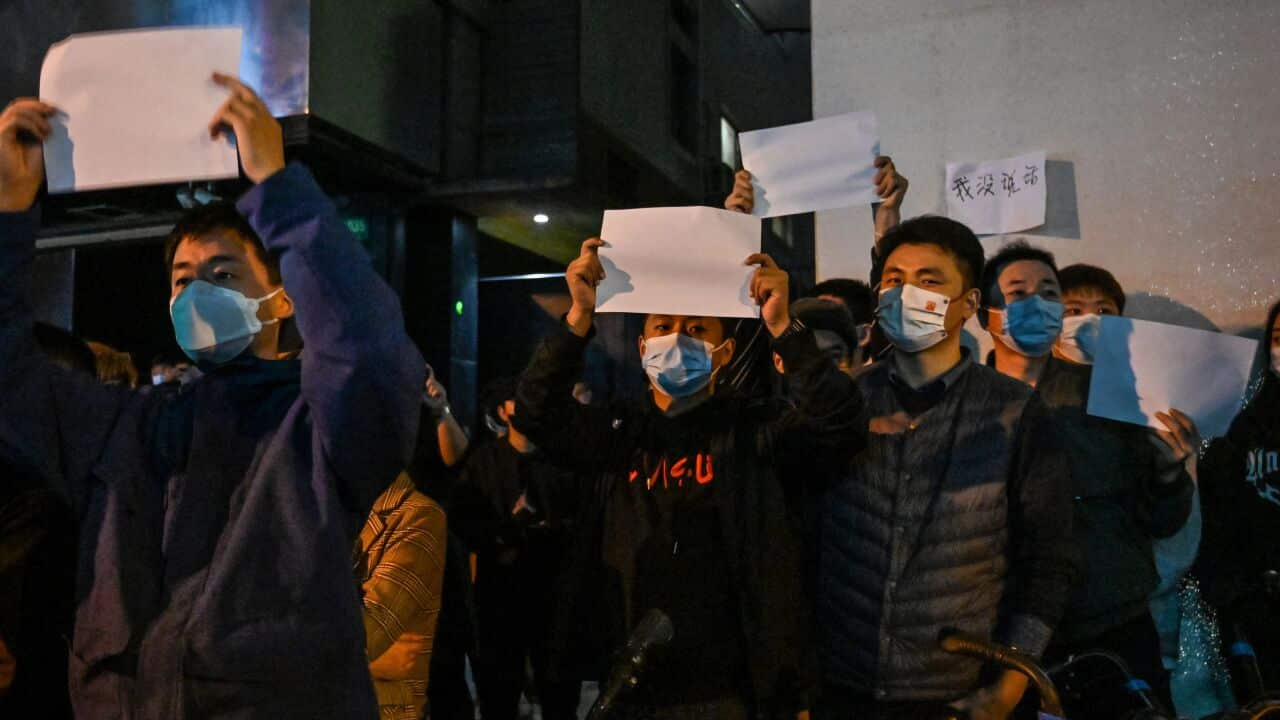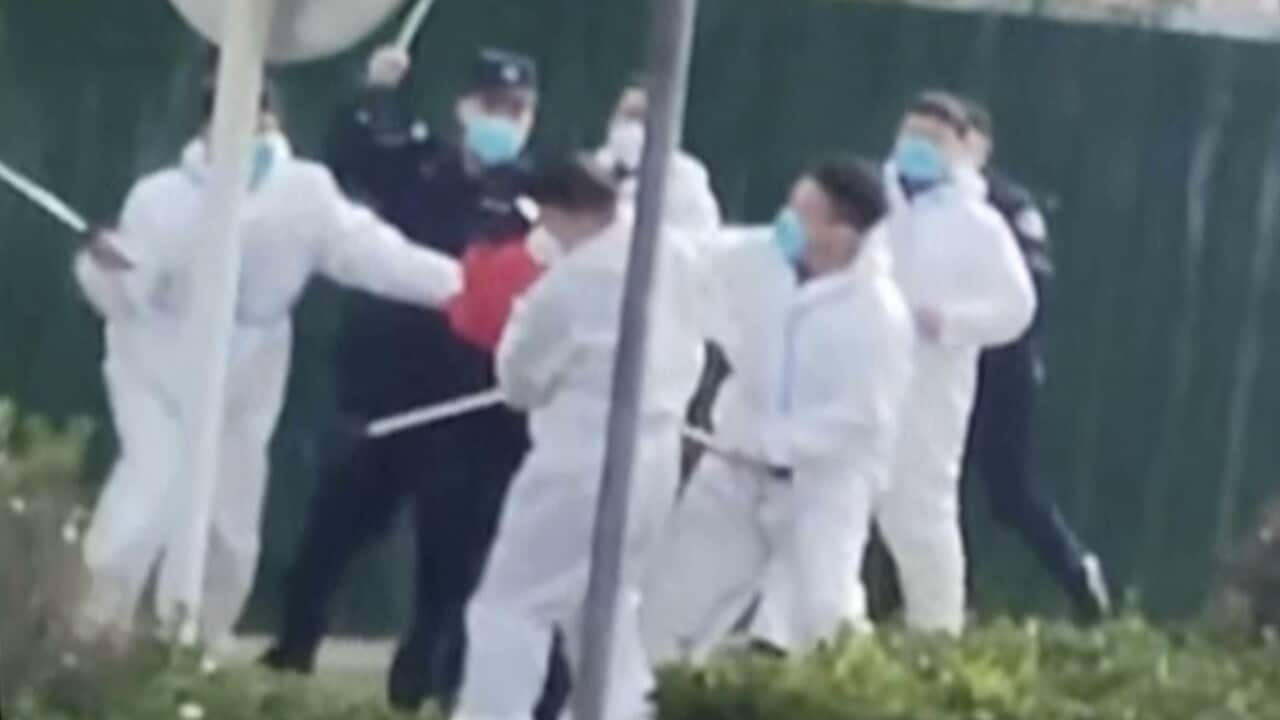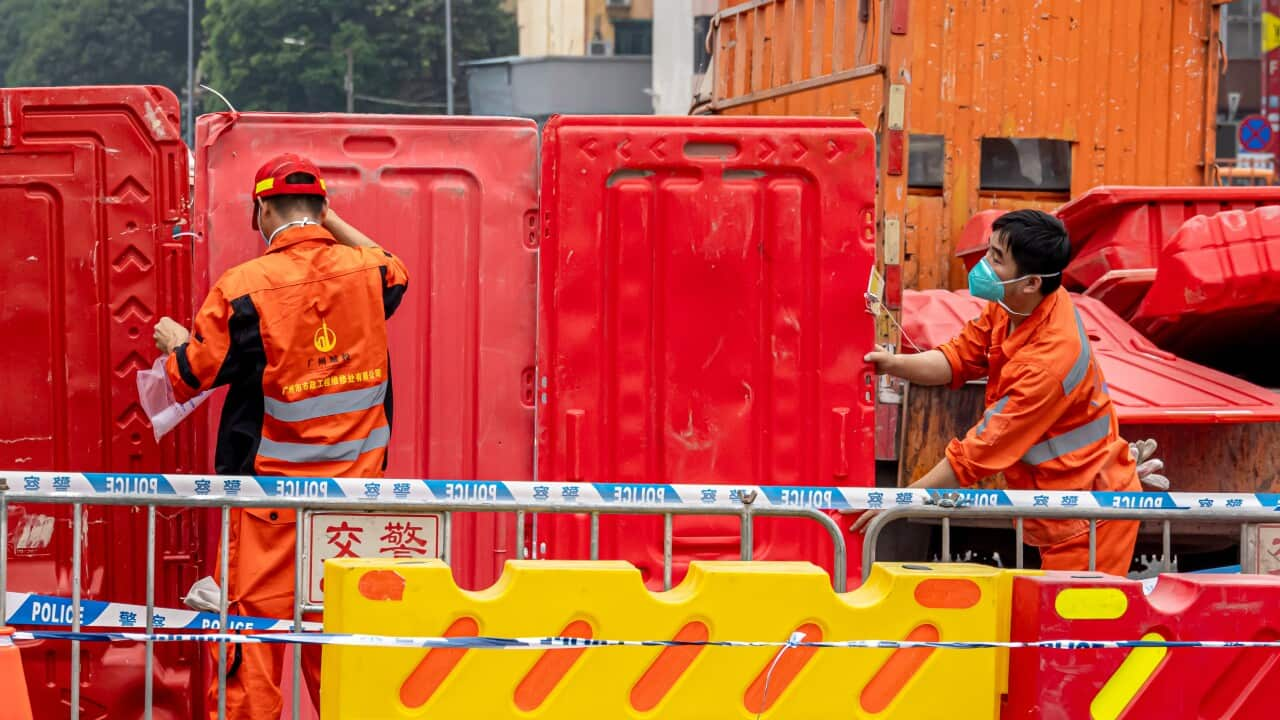Key Points
- Demonstrators and police have clashed in cities across China over the country's stringent COVID-19 policies.
- Civil disobedience and criticism of the government are rare in China, especially since Xi Jinping has been in power.
As a rare wave of continues in cities across China, questions are being raised over what might happen next in the world's most populous country that is ruled by the Chinese Communist Party.
Some are predicting escalation and violent crackdown, comparing the public outcry to the protests where hundreds, if not thousands, were reportedly killed by the Chinese army.
Others say the protests are likely to simply fizzle out.
As demonstrations continue and Chinese police are forced to confront protesters, SBS News asked China experts what might happen next.
Why are Chinese people outraged over COVID-19 restrictions?
Most of the world has transitioned out of COVID-19 restrictions in 2022 and into a "living with the virus" model, but President Xi Jinping remains committed to a strict regime.
Case numbers continue to rise, residents are subject to strict snap lockdowns of entire cities, lengthy quarantines and mass testing.
Earlier this month, Mr Xi recommitted to his zero-COVID regime.
Jennifer Hsu, research fellow and project director at the Lowy Institute, says residents are tired of the ongoing restrictions.
"After nearly three years of COVID and lockdowns ... people are exhausted," she said.
"People were looking for indications at the that things would gradually open up, but that didn't happen, and many people were disappointed ... it's exhaustion from being locked down and locked away."
Are these protests unprecedented?
While protests are not unheard of in China, it is unusual to see public criticism of the government, particularly since President Xi Jinping came to power in 2013.
Professor David Goodman, director of the China Studies Centre at the University of Sydney, said the nature of the protests sweeping across different cities was also rare.
"What's unusual about these protests is that whereas protests in China are normally localised, these have a national element," he said.
"People are picking up the same messages across the country and they have moved beyond the local ... there's a copycat effect."
Ms Hsu agreed that the large-scale and widespread nature of the protests was unusual.
"We've seen scales of protest over the last 20 years, related to the land being confiscated, wages not being paid, or people being short-changed by local governments," she said.
"But I don't think in maybe 10 years we've seen this kind of proactive measures taken by citizens across different locations in China."
Will the protests ramp up or fizzle out?
Frustration with China's COVID-19 policies has been brewing for some time, but escalated over the weekend. It came after a deadly fire in the northwest Xinjiang region, with demonstrators claiming rescue attempts were hampered by lockdowns.
As public dissent continues, there have been questions of whether the protests will continue to escalate or gradually die down.
Dr Hsu said it was difficult to predict which way it will go.
"There is always the danger of protests snowballing into a greater number of areas and communities," she said
"I don't want to predict the future, but I think the authorities may continue with the measures of their zero-COVID strategy."
Will authorities enforce violent crackdowns?
While there have been reports of violence from authorities, Ms Hsu said the police response is not currently at the same level as the protests in 1989.
"It's hard to say how the authorities will take this ... there is potential for authorities to be very forceful and draconian," Ms Hsu said.
"There may be harsher crackdowns in some areas compared to other areas based on the perception of threat by the party state."

Hundreds of people took to the streets in China's major cities on 27 November to protest against the country's COVID-zero policy in a rare outpouring of public anger against the state. Source: AFP / NOEL CELIS/AFP via Getty Images
"I hope there will not be a violent repression of all demonstrations," he said.
"After all, these protests are not occupying a square full time, they come, move along the road and have a procession, and then everybody goes home."
Could this be the end of Xi Jinping's rule?
The protests and public criticism present a difficult situation for the government and Mr Xi.
Officials have not made an official statement following the protests, but have previously vowed to continue with the zero-COVID policy, claiming it as necessary and life-saving.
Professor Goodman says it is unlikely that protests alone would lead to any kind of regime change.
"For a regime change to happen, there would have to be not just protests, but also a split in the elite and a major state crisis; at the moment we're just at the protest level at the moment," he said.
"So we're a long way away from that."
Dr Hsu said it was unlikely that the protests would lead to any changes in the short term.
"I don't think the party would want to be seen making a big hurrah about meeting the protesters' demands or requests for improvement, they won't do that ... they might declare they have won victory against COVID-19 and then move to the next stage," she said.
"It will be difficult for senior members of the Communist Party to back down and relent, because Xi Jinping has staked so much of his legitimacy and credibility on China's low COVID-19 numbers."





